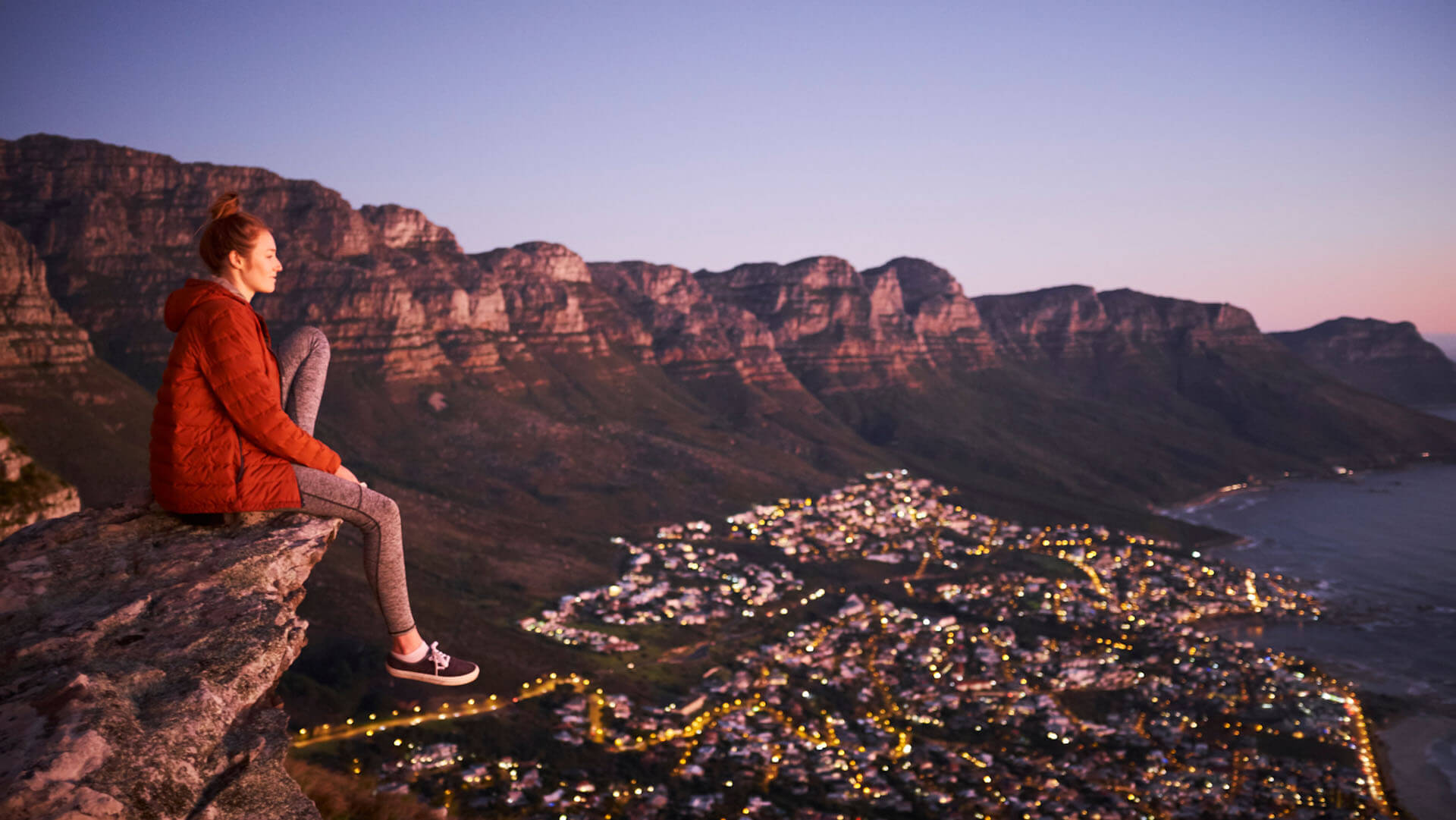-
Cape Town is one of the most vibrant and multicultural cities in the world. It’s considered the tourism capital of Africa, and in 2014 both the New York Times and The Telegraph declared Cape Town the most exciting city in the world to visit.
So what makes Cape Town so special? The Western Cape of Africa, where Cape Town lies, is one of those unique spots in the world where a wide range of attractions seem to meet in harmony. The spectacular Table Mountain National Park towers over the city, which is filled with historic Cape Dutch architecture and surrounded by white sand beaches.
The whole area is rich in biodiversity and rare flowering plants found nowhere else in the world, and was declared a UNESCO World Heritage site in 2004.
Natural wonders
The defining geographic feature of Cape Town is surely the iconic Table Mountain. Standing over 1000 m tall with vertical cliff faces and a flat peak, the mountain draws in thousands of tourists each year to hike to the top, or take the cable car. Rock climbing and mountain biking are also popular activities.
This area, the Cape Floral region, is World Heritage Site. It’s home to over 2,200 species of flowering plant, including many varieties of South Africa’s national flower, the Protea. Many of these varieties are found only in the area around Cape Town.
Being situated on the Cape, there are also plenty of beaches to explore within the city limits. Surfing is popular and there are waves for all levels; and every year Cape Town hosts the Red Bull Big Wave Africa contest.
Cosmopolitan city
Cape Town is a melting pot of colours and cultures, and can seem at times like it’s still finding its identity as a true African city. The Cape Town CBD is exceptionally well-designed and easily walkable. This makes a lot of sense – in 2014 Cape Town was named the Design Capital of the World.
There’s plenty of historic Cape Dutch architecture to admire, as well as street art, installations, and the photographer’s dream suburb, Bo Kaap, to wander around and soak up. You won’t be left looking for suitable eating and drinking options either, with Cape Town serving up ultra-fresh seafood, local wine and a burgeoning craft beer scene.
Wildlife on your doorstep
Cape Town is home to some fascinating wildlife. In between the enormous granite boulders that gave Boulders Beach its name, you can observe a large colony of African penguins. This colony has been in the area since 1983, and is quite unusual as it has settled in an urban area, allowing visitors to get very close via a series of boardwalks.
Trek up to the peak of Table Mountain and you might be lucky enough to catch a glimpse of a rock hyrax, commonly know as a dassie. This badger-like creature inhabits the summit of Table Mountain and surrounds, living off plants and insects (and unfortunately, rubbish and scraps left behind by tourists).
Colonies of baboons also make their homes within the Cape Town city limits. While they’re fun to observe, it’s important not to feed or touch them. The city has recently been having problems with baboons ransacking suburban areas looking for food. Rangers now log their foraging patterns, armed with paintball guns to dissuade any over-confident animals.
Discover cities all over the globe with every eventuality covered. Travel insurance gives you peace of mind, no matter where you are in the world. Get a competitive quote today.
Cape Town: the cosmopolitan coastal city

-
How is ‘phubbing’ hurting your relationships?
Here’s how to stop phubbing and be more mindful of your phone habits, to help improve face to face interactions with your family and friends.
-
Are the winter blues real?
Simple ways to boost your mood in winter.
-
Mental fitness explained
Just as you work to strengthen your body, your mental health deserves attention and exercise too.
-
Signs it's time to visit the dentist
Nobody wants to go. But there are good reasons to – promise.
-
The link between stress, anxiety and jaw pain
Physiotherapist Michael Chan explains how stress and anxiety can cause jaw pain, and how to help get some relief.
-
When you can't sleep next to your partner
You love everything about them – except their sleep habits.
Subscribe to receive the best from Live Better every week. Healthy recipes, exercise tips and activities, offers and promotions – everything to help you eat, move and feel better.
By clicking sign up I understand and agree to Medibank's privacy policy





.jpg)
